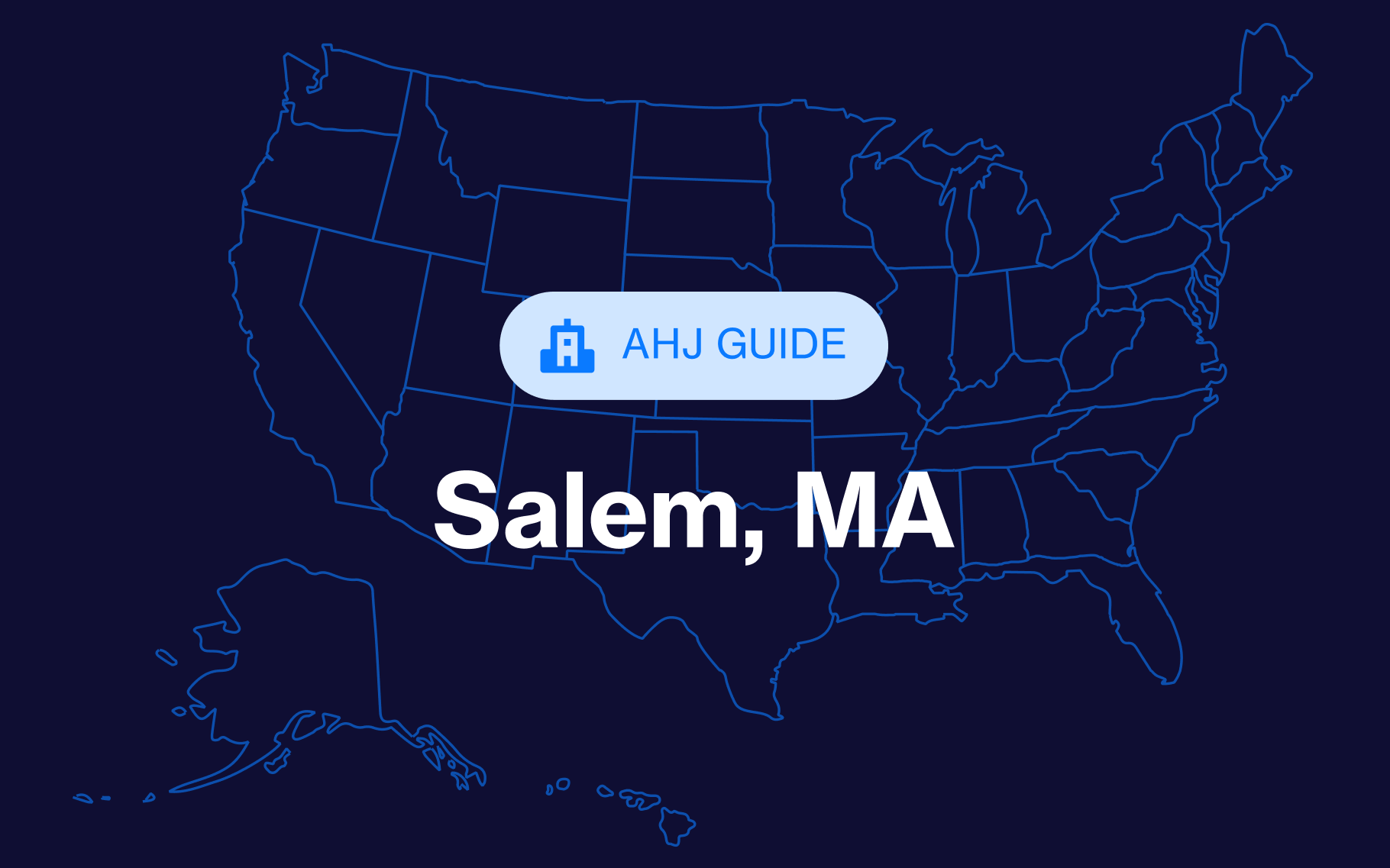Looking to start a project in Massachusetts? The Massachusetts State Building Code (780 CMR) sets the basic framework for pulling a permit. The real complexity comes from local municipalities.
For general contractors, developers, and builders, knowing the variance between the different municipalities of Massachusetts is the key to avoiding delays and cost overrun.
What requires a building permit in Massachusetts?
Under 780 CMR Section 110.0, any construction, alteration, repair, demolition, or relocation of commercial structures requires a building permit.
This includes:
- Structural framing, additions, and new builds
- Electrical, plumbing, gas, mechanical, and HVAC
- Fire safety systems, elevators, signage, and asbestos abatement
- Demolition work and site relocations
Permits are generally NOT required for cosmetic repairs, like paint, wallpaper, or floor refinishing.
Who issues building permits in Massachusetts?
In Massachusetts, permits are handled locally through municipal inspectional services or building departments.
- Large cities like Boston use counter-based systems — Boston’s Counter 1 handles building, electrical, plumbing, and gas permits.
- Towns like Tyngsborough and Mashpee follow 780 CMR timelines: 30 days to act, 48 hours for inspections.
- Other towns, like Lowell, Chelmsford, and Maynard, offer online permitting for trades and building work.
State-owned building projects will go through the Board of Building Regulations and Standards (BBRS).
Massachusetts building permit requirements
To apply for a building permit in Massachusetts, you’ll need:
- Completed application form, including project valuation
- Sealed architectural/structural plans from Massachusetts-licensed professionals
- Trade permit checklists (for electrical, gas, plumbing, mechanical, or fire safety)
- Asbestos abatement documentation for renovation or demolition work
- Site plan (for new buildings, relocations, or fire systems)
- Insurance certificates, contractor licenses, property ownership proof
Massachusetts building permit costs
Massachusetts building permit fees depend on the jurisdiction you’re filing in. Below, we list a few examples of how permit fees are determined in Massachusetts:
Plan review fees, issuance fees, trade permit fees, and reinspection or late start fines should be included in your budget to prevent any surprise costs.
Unique considerations when permitting in Massachusetts
- Strict asbestos abatement requirements
- Massachusetts has some of the strictest asbestos permitting regulations in the country. It’s overseen by both local building departments and the Massachusetts Department of Environmental Protection (MassDEP).
- 780 CMR compliance is localized
- Massachusetts enforces the 780 CMR State Building Code, but each city and town interprets and applies it differently.
- Trade permits are separate and manually tracked
- Unlike some states that bundle permits together, Massachusetts requires separate permits for each trade: electrical, plumbing, gas, HVAC/mechanical, and fire systems. Each permit must be submitted by a licensed trade contractor in that field.
- Inspections must be scheduled within 48 hours — but may take longer
- State law mandates that inspections be conducted within 48 hours of the request. However, in practice, many jurisdictions face delays due to staffing shortages or seasonal workloads.
- Energy code and stretch code requirements
- Massachusetts adopts the International Energy Conservation Code (IECC), but many cities and towns also enforce a Stretch Energy Code that exceeds base code requirements.
How to get a building permit in Massachusetts
For a smoother permitting process, follow these steps:
- Double check your jurisdiction.
- Determine if your job falls under a specific city or town building department (e.g., Boston ISD, Chelmsford Building Department)
- Attend a pre-submittal meeting (for large-scale projects only).
- Discuss your project scope, trade involvement, asbestos levels, and introduce different project stakeholders, such as the general contractor or project manager. Be sure to clarify timelines with the building department if necessary.
- Submit your application packet.
- Include all completed forms, sealed plans, trade checklists, asbestos report, insurance information, and any necessary fees.
- Plan review period.
- During this stage, your municipality will issue corrections. A typical plan review window is 30 days from complete application submission.
- Pay issuance fees and pick up permit.
- Your permit becomes valid once issued and posted on your site location.
- Schedule inspections.
- Municipalities must inspect within 48 hours of request per 780 CMR. Inspections include footing, framing, trades, fire protection, and final project sign-off.
- Certificate of occupancy issuance (C of O).
- After your final inspection and compliance checks, the building department will issue you a Certificate of Occupancy.








